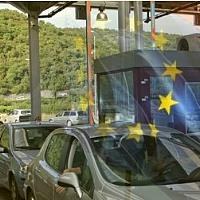(LUXEMBOURG) – The EU adopted Tuesday a common framework on travel measures in response to the COVID-19 pandemic, with recommendations to help states take decisions based on the epidemiological situation region by region.
The agreement is aimed at providing more clarity and predictability for European travellers, with a common map and colour code based on common criteria. Member States should also provide them with clear and timely information about what they must do, and which restrictions are in force.
The measures are a recognition of the disruption the COVID-19 pandemic has brought to people’s daily lives. Travel restrictions have also made it difficult for some people to get to work, to university or to visit their loved ones.
The agreement makes clear that any measures restricting free movement to protect public health need to be ‘proportionate and non-discriminatory’, and must be lifted as soon as the epidemiological situation allows.
Common criteria and mapping
Every week, member states will have to provide the European Centre for Disease Prevention and Control (ECDC) with the data available on the following criteria:
- number of newly notified cases per 100,000 population in the last 14 days
- number of tests per 100,000 population carried out in the last week (testing rate)
- percentage of positive tests carried out in the last week (test positivity rate)
Based on this data, the ECDC should publish a weekly map of EU member states, broken down by regions, to support member states in their decision-making. Areas should be marked in the following colours:
- green if the 14-day notification rate is lower than 25 and the test positivity rate below 4%
- orange if the 14-day notification rate is lower than 50 but the test positivity rate is 4% or higher or, if the 14-day notification rate is between 25 and150 and the test positivity rate is below 4%
- red if the 14-day notification rate is 50 or higher and the test positivity rate is 4% or higher or if the 14-day notification rate is higher than 150
- grey if there is insufficient information or if the testing rate is lower than 300
Free movement restrictions
Member states should not restrict the free movement of persons travelling to or from green areas.
If considering whether to apply restrictions, they should respect the differences in the epidemiological situation between orange and red areas and act in a proportionate manner. They should also take into account the epidemiological situation in their own territory.
Member states should in principle not refuse entry to persons travelling from other member states. Those member states that consider it necessary to introduce restrictions could require persons travelling from non-green areas to:
- undergo quarantine
- undergo a test after arrival
Member states may offer the option of replacing this test with a test carried out before arrival.
Member states could also require persons entering their territory to submit passenger locator forms. A common European passenger locator form should be developed for possible common use.
Coordination and information to the public
Member states intending to apply restrictions should inform the affected member state first, prior to entry into force, as well as other member states and the Commission. If possible the information should be given 48 hours in advance.
Member states should also provide the public with clear, comprehensive and timely information on any restrictions and requirements. As a general rule, this information should be published 24 hours before the measures come into effect.



